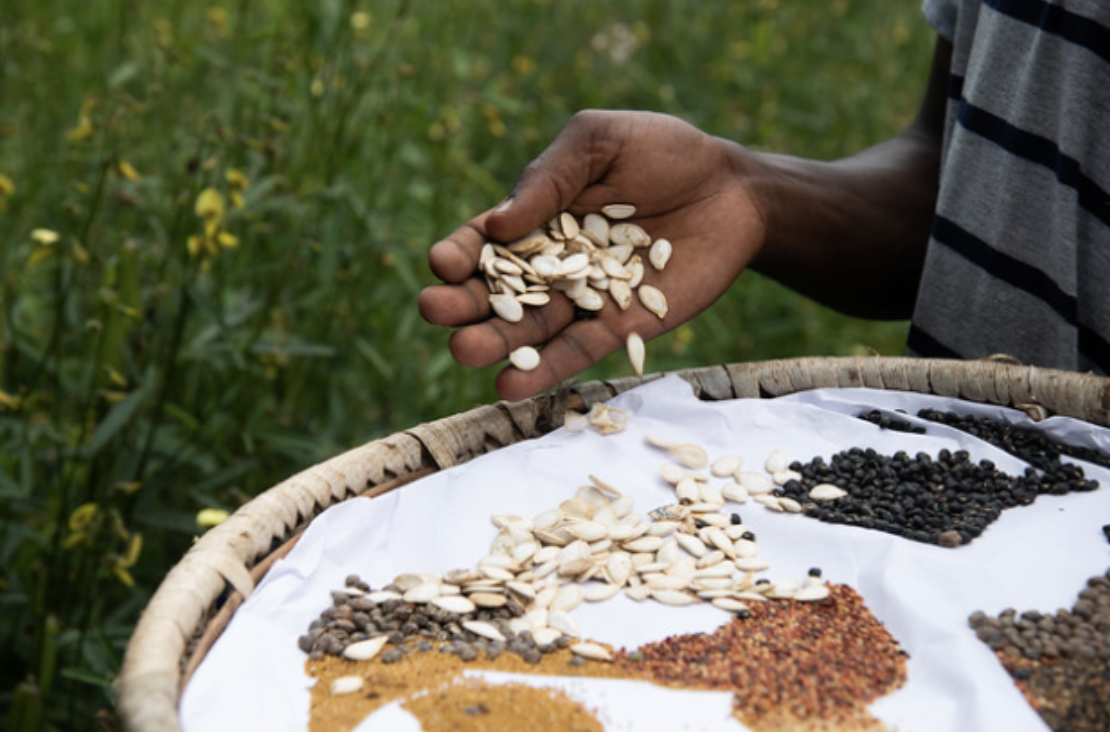Testimony of Ukrainian Georgetown Student and the Path Forward for the War in Ukraine
Protestors Showing Support for Ukraine in February 2022 in Washington DC (Deposit Photos).
The Congressional Progressive Caucus issued a letter to President Joe Biden on October 24 requesting that he pursue direct diplomatic discussions with the Kremlin. However, after receiving intense backlash, the group retracted its letter only a day later.
The Progressive Caucus has not been the only group to advocate for a diplomatic resolution to the war. General Mark A. Milley, Chairman of the Joint Chiefs of Staff, has also been pressuring President Biden to consider diplomatic avenues, stating, “When there’s an opportunity to negotiate, when peace can be achieved, seize the moment.”
Throughout the war in Ukraine, President Biden and his NATO allies have maintained their commitment to supporting Ukraine’s means of ending the war, putting the country’s and its people’s needs first. Thus, these recent pushes for diplomacy must consider Ukrainian perspectives.
According to the United Nations Human Rights Council, as of November 2022, there are roughly eight million Ukrainian refugees. Among these members of the Ukrainian diaspora are four Georgetown undergraduate students.
I spoke with Kyryl Myronenko, a freshman in the School of Foreign Service. Kyryl was forced to leave Ukraine at the onset of the war. Many of his family members and friends still live in the war-torn country.
“There isn’t a single person in Ukraine whose life hasn’t been flipped upside down since the war began,” Kyryl said. In Kyryl’s hometown of Cherkasy, located in Central Ukraine, there have not been any direct battles, but missile strikes and power outages have made it difficult for Kyryl to communicate with his family.
“You never know what’s going to happen to you or your loved ones in the next five minutes,” he said.
Like many Ukrainians, Kyryl agrees with his government’s reluctance to engage in negotiations with Russia. “We cannot talk about any territorial concessions… for us to be able to talk to them normally, [the Russians] have to be out of our territory,” Kyryl explained. “This is our country; this is our land; this is our people.”
Since the onset of the war, Ukraine has experienced immense suffering. An estimated 100,000 casualties have occurred and Russian attacks on Ukrainian infrastructure and civilians have sparked a massive humanitarian crisis.
However, unlike some Western analysts, who argue these conditions necessitate diplomatic conversations, Kyryl shared that Ukrainians are undeterred. Although bombings have destroyed energy facilities, he believes Ukrainians would “live with no light, but we’d better be free.”
At the recent G20 Summit, President Volodymyr Zelensky outlined certain parameters for peace negotiations, such as restoring Ukraine's territorial integrity, punishing war criminals, and compensating Kyiv for the invasion.
Kyryl expressed his support for these conditions, saying “[Russia doesn’t] want to have any negotiations for the war to be over, they just want to come back stronger, bigger, [and] more prepared.”
Throughout the war, the United States and NATO have played large roles in aiding Ukraine, with the US closely approaching $20 billion in military aid.
Kyryl expressed that the Ukrainian people have appreciated this support, “the U.Sis our number one ally… it’s important to have such a big partner that supports us.”
A resolution to the war would need to be decided on Ukrainian terms. But if the state of the war were to ever lead to negotiations, Kyryl said, the United States could serve as a moderator of conversations. Any platform that President Biden chooses to continue will have a large effect on both the ability and morale of the Ukrainian people.
The Ukrainian people have incurred insurmountable losses throughout the war. Kyryl praised the resilience of the Ukrainian people as a factor enabling their ability to continue fighting despite harsh conditions.
“You can be fearless when you have a goal in your mind,” he said.
At the conclusion of our conversation, I asked Kyryl what he would say to the American government and media if he were given the opportunity.
He shared that it is essential for coverage and discussion of the war to continue. “This is the war for Ukraine’s future and the future of the entire world,” Kyryl said. If the international community does not respond to Russian authoritarianism, it sends a chilling go-ahead to unjust leaders everywhere.
My conversation with Kyryl left me with hope for the future of Ukraine. Despite the tumultuous year the Ukrainians have incurred,their unwavering and relentless spirit lives on.
Currently, the Biden administration is continuing to implement non-diplomatic strategies to deter Russia, some of which are succeeding. Western sanctions have led to a significant drop in non-oil and gas sector tax revenue, and bans on Western technology imports have affected the Russian economy as well.
To continue being an effective ally, the West should maintain these disciplinary policies against Russia, considering Ukrainian perspectives and the real suffering the war continues to sow.
As his home endures its fight for existence, Kyryl’s determination shines as a testament to his people’s perseverance. As he said, “Ukraine is the synonym of bravery.”






